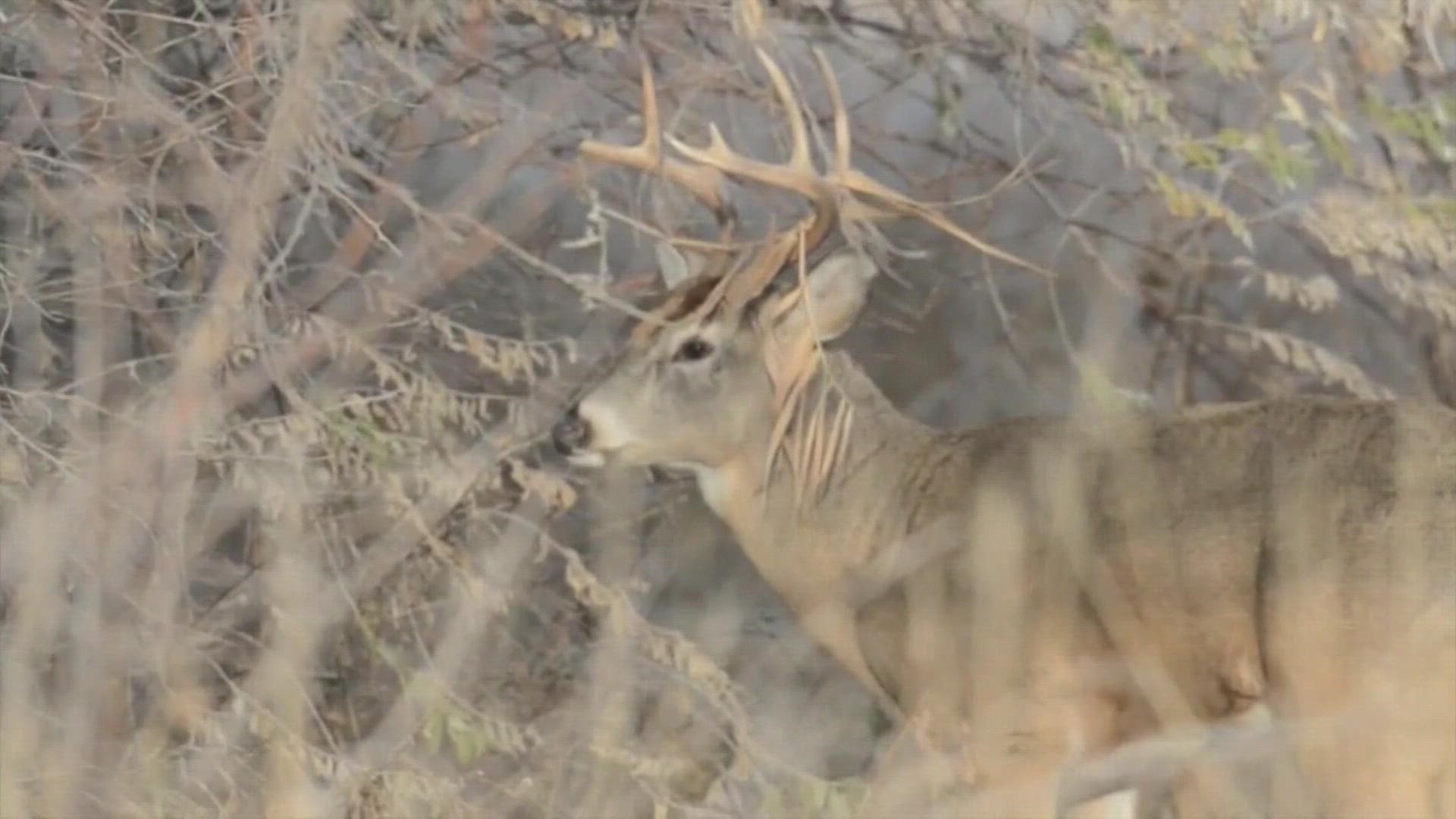MAINE, Maine — Chronic Wasting Disease (CWD) attacks the nervous system of cervid mammals. The disease has been found in wild and captive elk, moose, and caribou, as well as white-tailed, mule, red, and sika deer.
According to the Maine Department of Inland Fisheries and Wildlife, the disease is transmitted by direct contact with infected individuals or by any contact with contaminated soil, leaves, bedding, feed, or water.
CWD symptoms are considered a “slow burn” and typically take five to 36 months to appear in cervid mammals. Once symptoms appear, the animal will die between one and 12 months.
The amount of time it takes for symptoms to form can make it difficult for hunters to know if the animal has CWD. Because of this, the Maine Department of Inland Fisheries and Wildlife has provided hunters with all the known facts on CWD and the best practices for avoiding further transmission of the disease.
The Maine Department of Inland Fisheries and Wildlife has not found any cases of CWD in Maine, and it's important to note there is currently no evidence that the disease can be transmitted to humans. The Centers for Disease Control and Prevention recommends that if a hunter shoots a deer that tests positive for the disease, they should not consume that meat.
Though CWD doesn’t pose any danger to humans, it is completely fatal for deer. Nathan Bieber, a deer biologist for the Department of Inland Fisheries and Wildlife deer biologist, said it isn’t just a deer issue -- it’s a hunter and hunting issue.
“If hunters are looking at a situation where, ‘I'm going to go out in the woods, and I'm going to hunt,’ are they still going to want to do that knowing that those deer are infected? That can really impact hunter behavior, hunters' interest in participating, hunters' interest in consuming meat," Bieber explained. "So, it’s not just a deer impact, but it’s also a hunting tradition impact that we have to worry about with CWD’s introduction into Maine.”
Though CWD hasn’t been found in Maine or New Hampshire, where it is legal to bring a deer carcass over state borders, the disease has been found as close as New York in 2005 and in Pennsylvania, where CWD continues to spread.
The Maine Department of Inland Fisheries and Wildlife has asked hunters to take several steps to avoid bringing the disease into Maine from other states.
- Follow Maine's import laws.
It is illegal to transport wild deer, caribou, moose, or elk carcass parts into Maine from any state or province except New Hampshire. Hunters may return to Maine only with boned-out meat, hardened antlers (with or without skull caps), hides without the head portion, and finished taxidermy mounts. If it's still attached, skullcaps should be cleaned free of brain and other tissues. - Take extra precautions when hunting out of state.
When hunting deer, moose, caribou, or elk outside of Maine, take necessary steps to avoid handling, transporting, or consuming CWD-infected specimens. Hunters returning from hunts and jurisdictions with CWD should very thoroughly clean their gear, such as boots and knives, before returning to Maine and entering the Maine woods. - Don't use urine-based lures.
Hunters should use synthetic, non-urine-based lures.
In a case where a Maine hunter takes a hunting trip to a CWD-infected area like Pennsylvania, Bieber said there are two areas of concern.
“One would be a hunter bringing a whole animal back to Maine from somewhere else. They gut it, take the meat off, they dispose of the carcass in the woods, and then you've potentially got an infected carcass on the landscape," he explained. "We definitely do not want to see that, but then the other thing is bringing infected hunting gear back into Maine. You could bring the CWD prions from soil back in on your boots. Or, if you've been cutting through your carcass, you may have that on your knife. So, we recommend any hunters who do travel out of state, especially to areas with CWD, ideally, when you come back, soak your boots (and knives/other cutting utensils) for five minutes in bleach or 50-50 bleach water, and that will treat surfaces and destroy the prions on surfaces."
For all the facts on Chronic Wasting Disease, including how State agencies are testing for CWD and what they are doing to prevent a CWD outbreak, you can visit the Maine Department of Inland Fisheries and Wildlife’s website. More information on how to help stop the spread of the disease can also be found on the website.
"We really don't want to find CWD in Maine. It doesn't just affect deer, but of course, it affects people as well," Bieber said.

